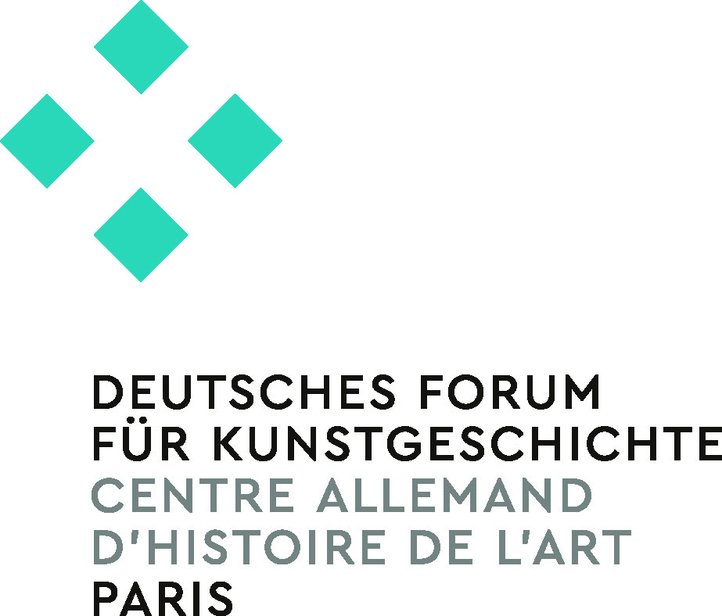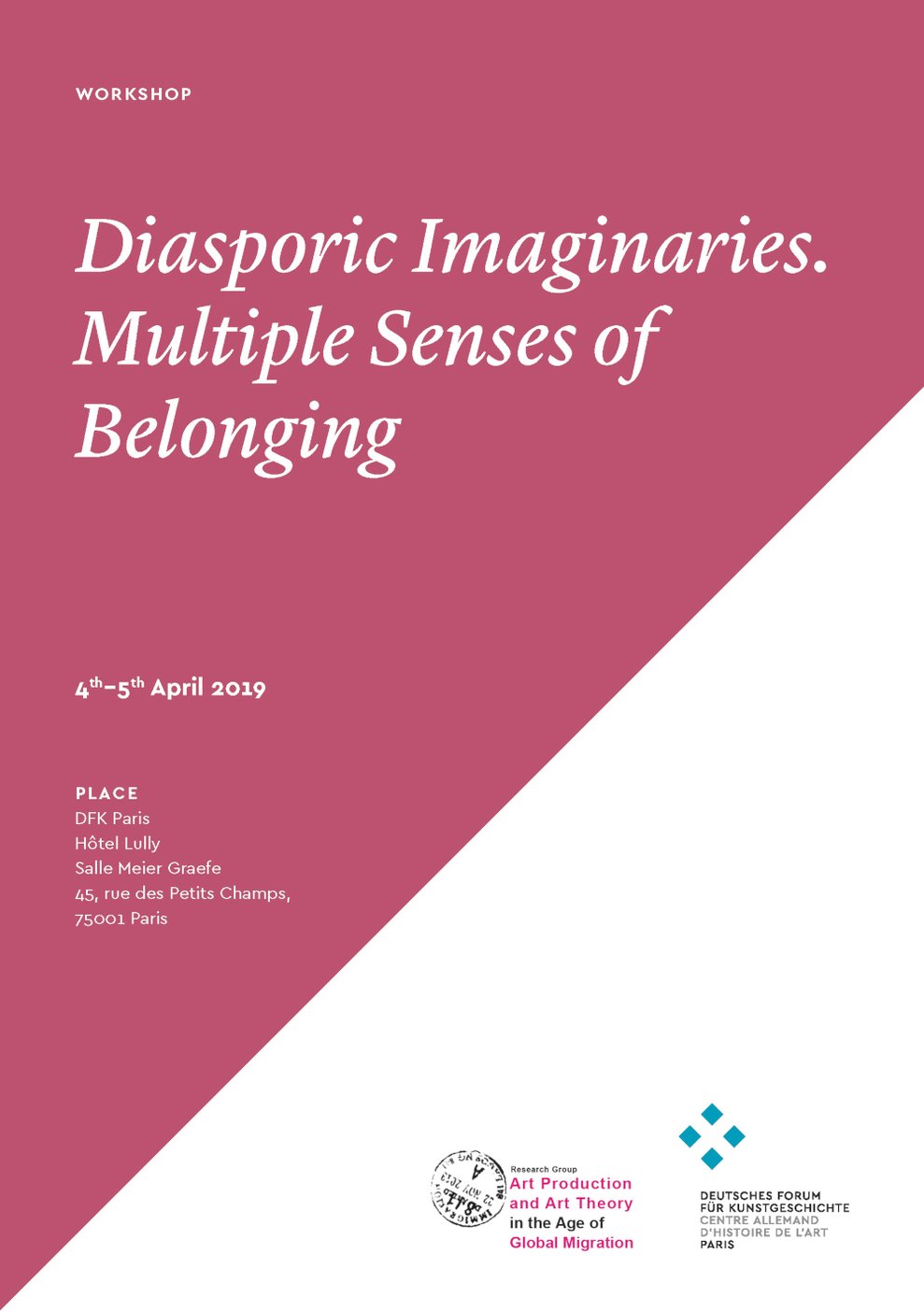Dr. Mona Schieren, Wissenschaftliche Mitarbeiterin an der HfK im Gebiet „Theorie und Geschichte der Kunst“, wirkt am 4./5. April 2019 als Mitveranstalterin der Konferenz „Diasporic Imaginaries. Multiple Senses of Belonging“ in Paris. Die zweitägige englischsprachige Konferenz ist eine Kooperation mit dem Deutschen Forum für Kunstgeschichte in Paris (DFK) und der AG für Kunstproduktion und Kunsttheorie im Zeichen globaler Migration.
Zusammen mit Dr. Lena Bader (DFK) und Prof. Dr. Birgit Mersmann vom Institut für Kunst und Kunstwissenschaft der Universität Duisburg-Essen geplant, führt Mona Schieren mit beiden durch die Konferenz, die in Panels und Workshops die Themen Migration, Diaspora und Exil behandeln wird.
Konferenz „Diasporic Imaginaries. Multiple Senses of Belonging“
4./5 April 2019
Deutsches Forum für Kunstgeschichte
Paris , Hôtel Lully
45, rue des Petits Champs, Salle Meier Graefe
75001 Paris
Eintritt frei.
Migration in art and art history is primarily defined by the movement in both space and time of artists, curators, and critics, and their works, ideas, and memories. It has engendered geographically dispersed artistic communities bound by shared diasporic experiences and has generated splintered temporalities of artistic relationalities that negotiate between pastness, nowness, and futurity. The increasing diasporization of art and culture is a far-reaching and profound shift resulting from global migration and its rapidly changing nature. As a global transnational process, migration has produced global diasporas, including ethnic, cultural, religious, and national diasporas, which fuel the dissemination of „diasporic imaginaries“. Along with transcending the limiting classical notions of diaspora as anchored in the Jewish tradition, it has diversified in scope on every level, extended its definitions, and repositioned itself at the intersection of (trans)migration, transnational, and postcolonial studies. Postcolonial and anthropological theories of transversality, transculturation, and translation have contributed to rethinking the diaspora in terms of hybridity and redefining it as a concept, structure, and social practice of translational migratory culture oscillating between integrity and discontinuity.
Reconsidering diasporic communities as „imagined communities“ (Anderson 1991) established the notion of the „diasporic imaginary“ (Mishra 1996), making it possible to reinterpret the imaginary as the creation of a shared diasporic space of dreams, fantasies, and visions. Most powerfully — and often even violently — the „diasporic imaginary“ emerges at the intersection of global transnationalization and (re-)nationalization. As a migration-based force, the diasporic imaginary is generated and informed by a multiplicity of temporalities, localities, traditions, identities, and subjectivities. The conference intends to approach the diverse plurality of „diasporic imaginaries“ in the arts, art communities, and art histories from the viewpoint of „multiple belonging“.
In Zusammenarbeit mit dem Deutschen Forum für Kunstgeschichte Paris und der AG Kunstproduktion und Kunsttheorie im Zeichen globaler Migration.

